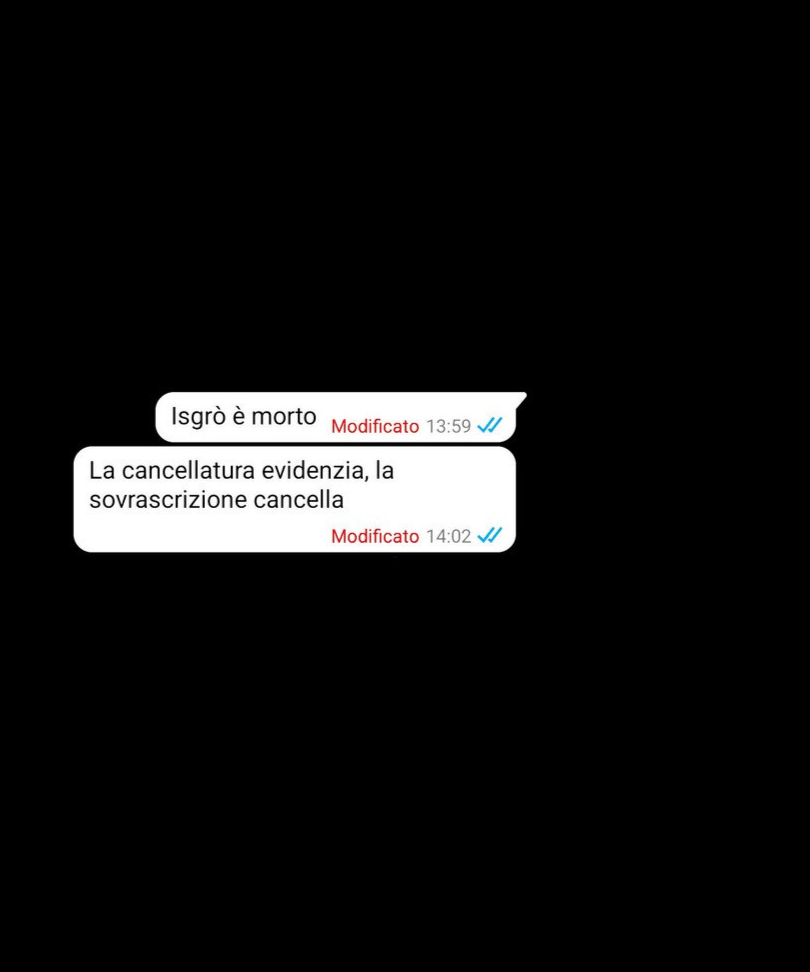
“In morte di Isgrò”, Andrea Paoli, opera digitale NFT
Digital art and mental art
We could say that digital art was born as conceptual art, since it finds its root in immateriality, and is immaterial because it exists only in thought: the object of art does not truly exist and, being useless, it is relegated to a temporary and unstable condition of the work. Thus, once the work is stripped of the object, it acquires the characteristics of ubiquity and of being impossible to fix in a single, definitive representation.
Yet, despite this premise, anyone familiar with today’s digital art scene cannot help but object that most works produced through digital means cannot, today, be defined as conceptual (at least not according to the classical definition of the movement). On the contrary, one could argue the opposite: the majority of these works are visual masturbations that have little to do with signaling a thought—kitsch art made even more kitsch by the “innovative” medium, which lends a semblance of exclusivity.
Given these considerations, we can affirm that digital art is, in truth, not conceptual art; rather, it is an art that is born and lives within thought itself—what we might call mental art. Of course, there are beautiful thoughts and stupid thoughts, good thoughts and bad thoughts, and this art that emerges, grows, and develops outside of the object is nothing more than thought itself, which can in turn be beautiful, stupid, good, bad, and so on.
Continuing this line of reasoning, we can analyze the key difference between conceptual art and the art that lives within the concept—that is, mental art. In experiencing the former, one must proceed by decoding: breaking down the elements of the work in order to grasp the underlying thought. In experiencing the latter, one must instead proceed by coding: contextualizing, reconstructing the whole from a fragment. It is the same difference as between perceiving a complex thought that must be divided into parts and perceiving a fragment of that same thought, zoomed in so many times that one can see its very cells.
This type of art is also a natural consequence of the development of intelligent systems: a neural network, reproducing mathematically the mechanisms of the brain, will result in a raw thought made visible through a sign. Having moved from art as the signal of a thought (conceptual art) to art inside thought itself, enabled by the digital (mental art), as we have said, there is no longer any need to decode anything.
Art of this kind is often perceived as banal because the whole body of thought is replaced by the finger. While in conceptual art one had to strip away a clothed body (resting on the support of the object) to reach the naked body, in mental art only the finger is shown, in all its details. What is analyzed, through zooming in, is the complex system itself.
My work “Material Page and Immaterial Page – Luminous Meanings Behind a Paper Sky”, exhibited at the Bastione del Parlascio as part of the exhibition Unframed (a title that itself refers to a dimension beyond the object), is situated in this line of research by placing in relation two pages: the material one made of paper and the spiritual-virtual one of the digital. The zoom into thought is composed of a series of “is” because everything—note carefully, everything, not just every word—is made of signifiers that come to signify only through their referential process. Everything, in other words, is a collection of small attributions of meaning; thus, everything is a collection of “is” that together build the greater thought, a vast complex of micro-references.
It is a point in a line of research that lies between conceptual art, which signals thought, and mental art, born already within thought.
Andrea Paoli
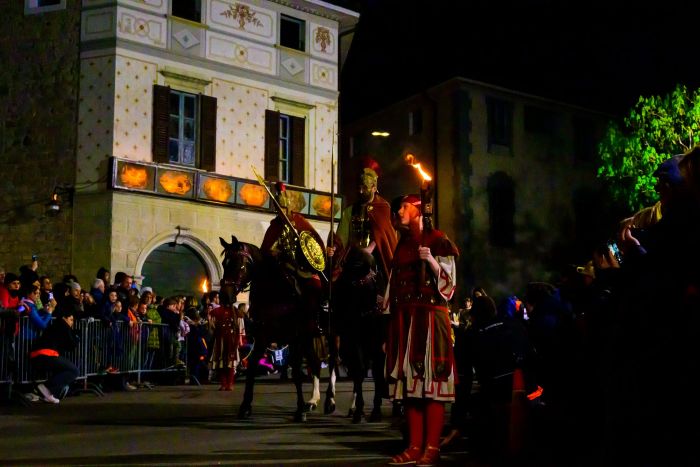


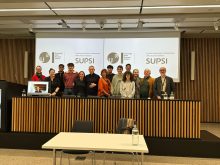
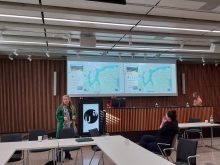
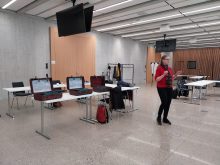
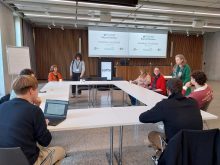
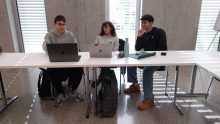
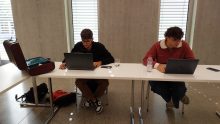
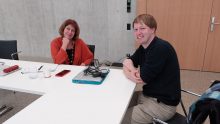
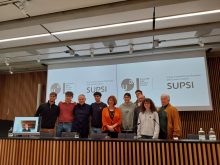
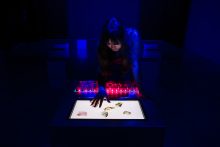
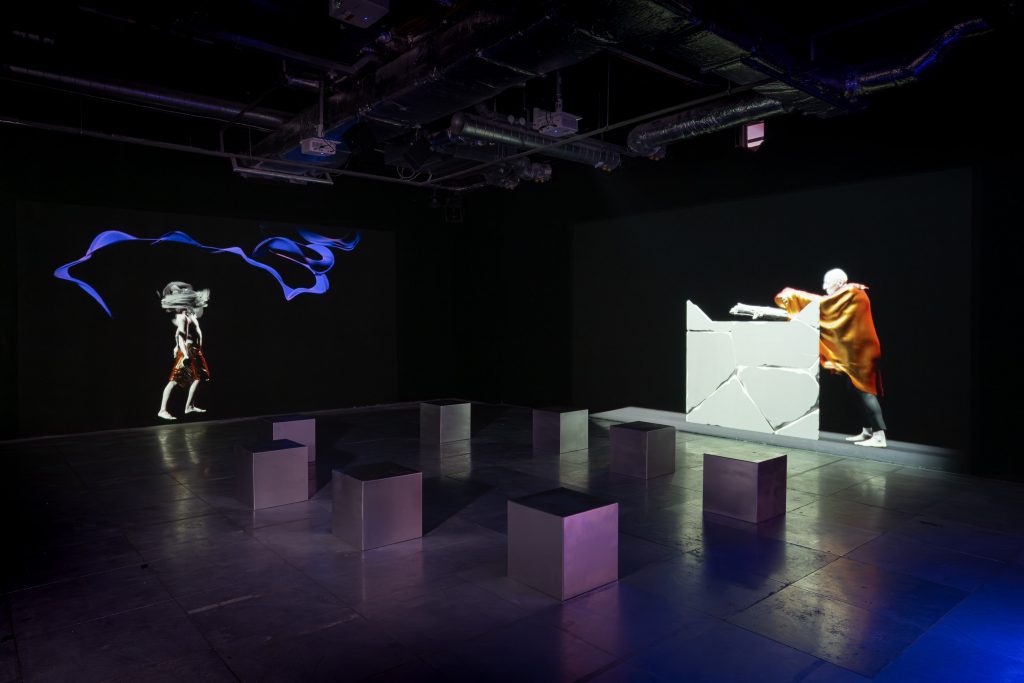
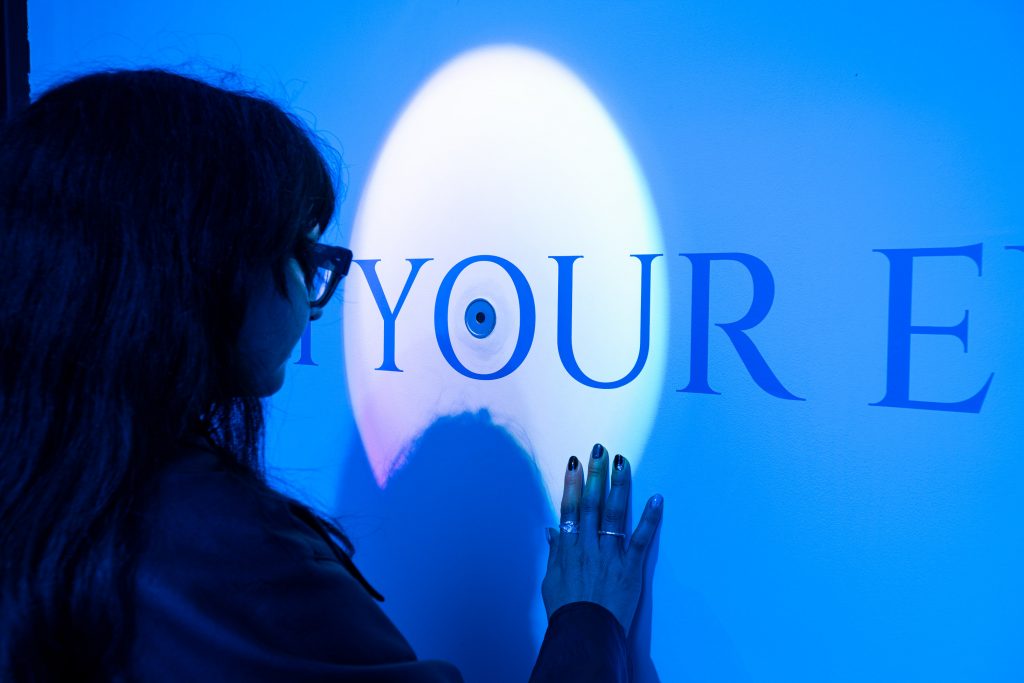
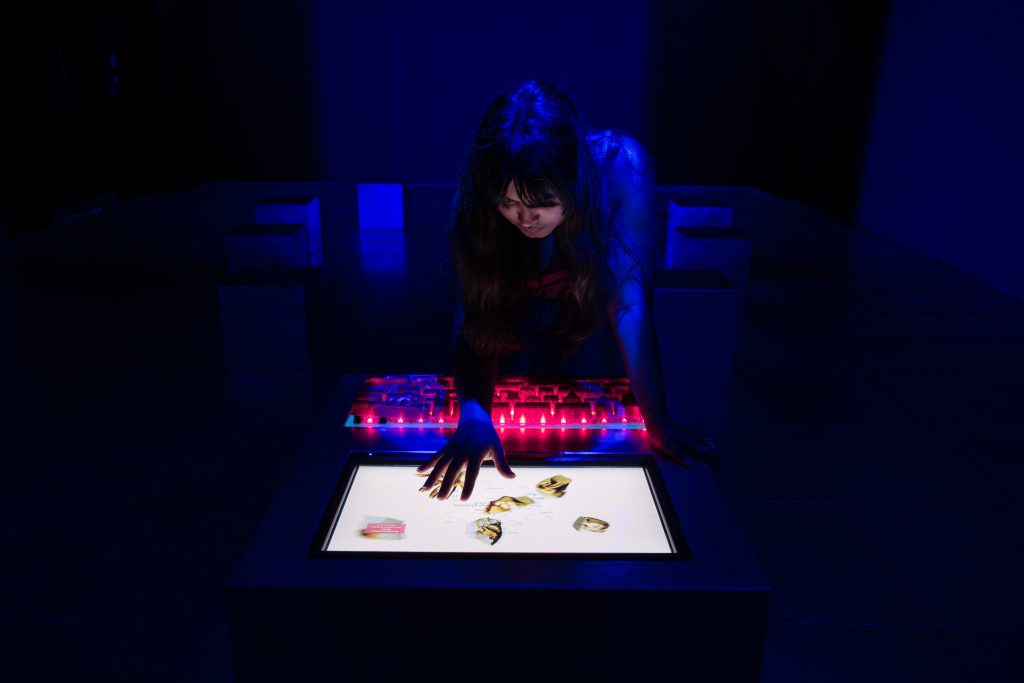
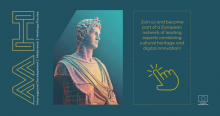
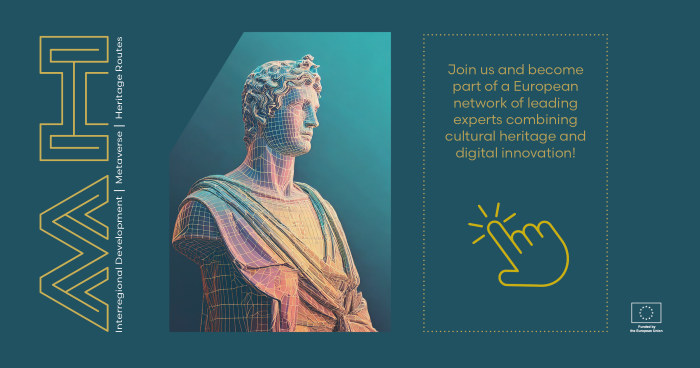
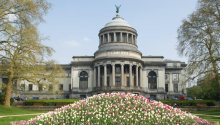


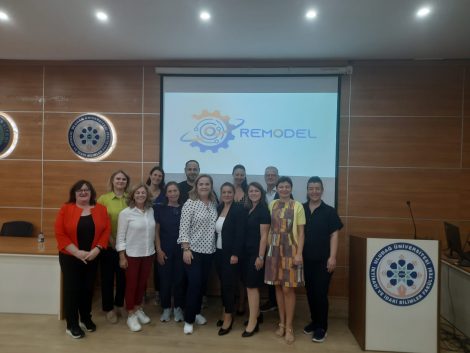
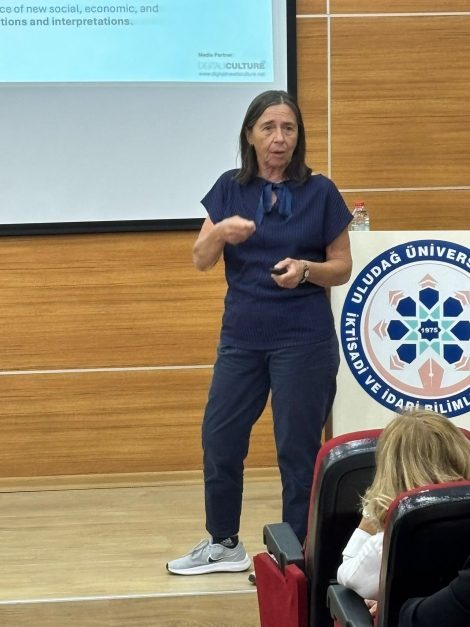
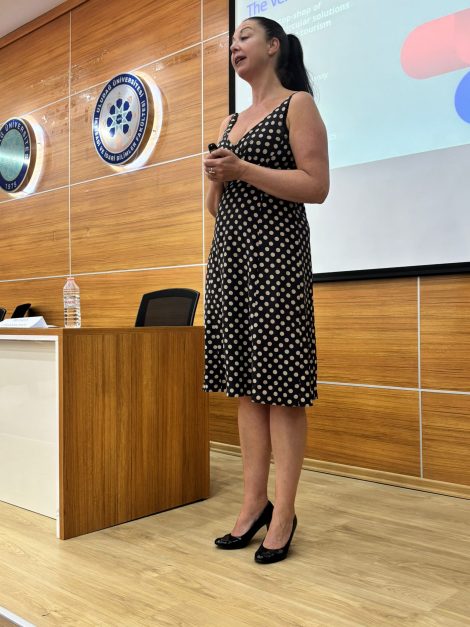
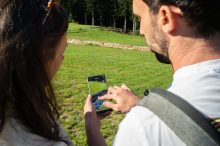









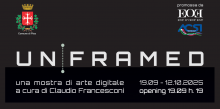
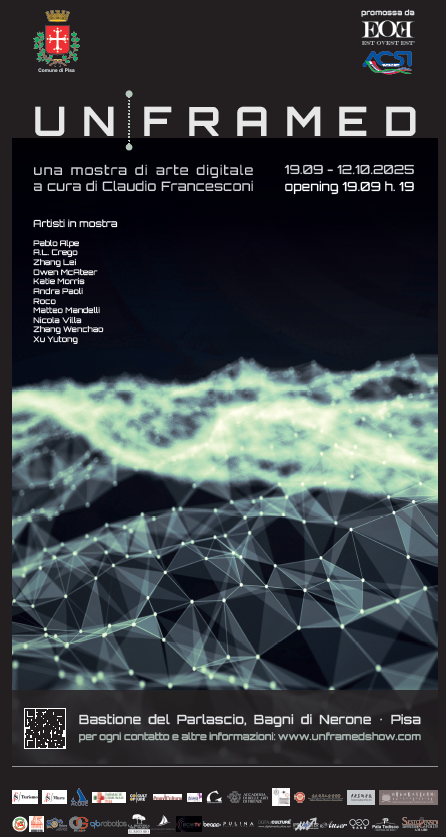
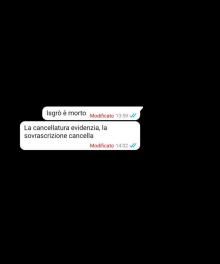

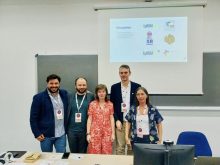
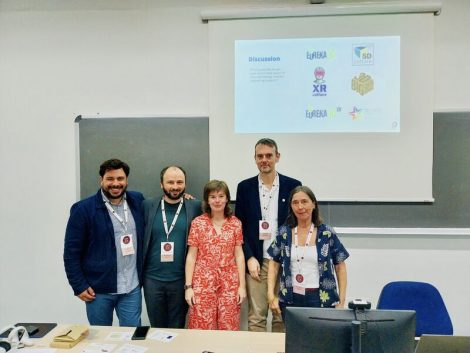











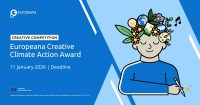
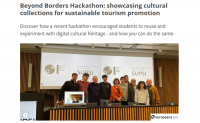

















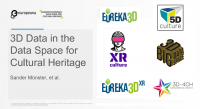
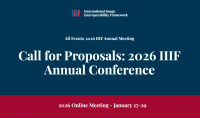
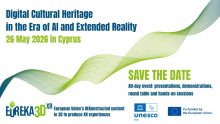





EUreka3D-XR partners Bibracte and NTUA School of Electrical and Computer Engineering are jointly progressing towards the creation of two XR tools applied to the French archaeological site. The pilot is named “The AR narrative of the hidden side of Bibracte archaeological site” and is about visiting the archaeological site of the Celtic city of Bibracte (France) and being able to understand the process of excavations, the reconstructed aspect of buildings and the artefacts that were retrieved by archaeologists in different zones of the site, by following a map available on a mobile app.
The main challenge of mediating with visitors to the Bibracte archaeological site is to enable them to see and understand the almost invisible remains and realities on the site. The EUreka3D-XR pilot and the tools developedby NTUA offer a more comprehensive and immersive response to this challenge, directly on the archaeological site.
Thanks to AR, visitors will be able to view 3D models of terrain and objects linked to their discovery context and enriched with complementary media. This visit will allow them to discover ‘the hidden side of Bibracte’ by having access to missing elements, not visible in situ or not directly accessible to the senses and intellect.
Field tests have focused on the AR Tour Experience application and the immersive rendering of the 3D models associated to the test point of interest in the Bibracte site, and while the the first results are encouraging, some adjustments still need to be done to improve the user experience, suggesting further development and problem-solving on the mobile application and its back-end platform, according to an agile and iterative methodology that is based on the feedback collected during the meeting onsite.
More evaluation of the prototypes is planned in the coming months, engaging various stakeholders internal and external to the project consortium. Basing on user feedback, the full joint team of NTUA and Bibracte is willing to offer an innovative tool serving heritage mediation, to advance the application of XR tools and offer a good user experience, aiming that both the tools and the scenario are useful for cultural heritage institutions.
Read more about the Pilot on project website: www.eureka3d-xr.eu
Blog Bibracte (French language): https://www.bibracte.fr/actualite/projet-eureka3d-xr-test-de-lapplication-ar-tour-experience